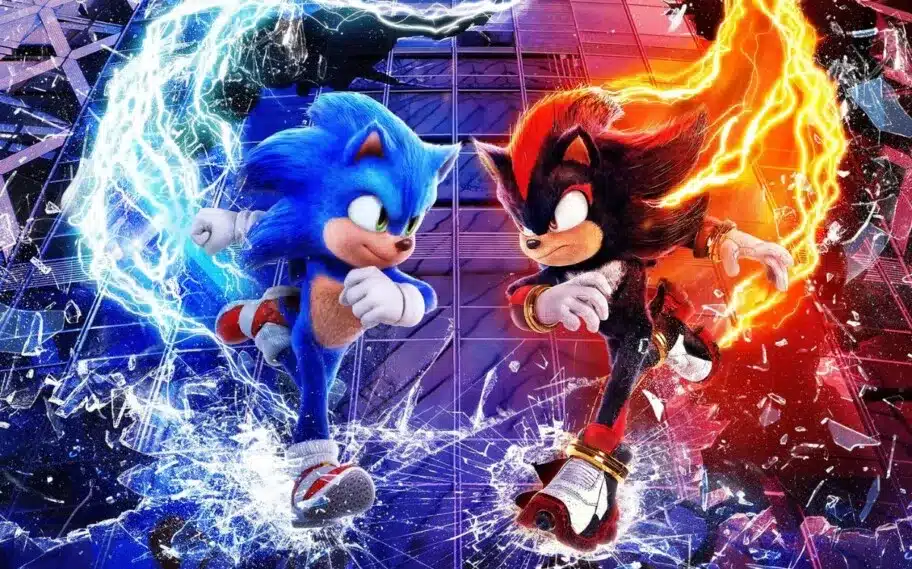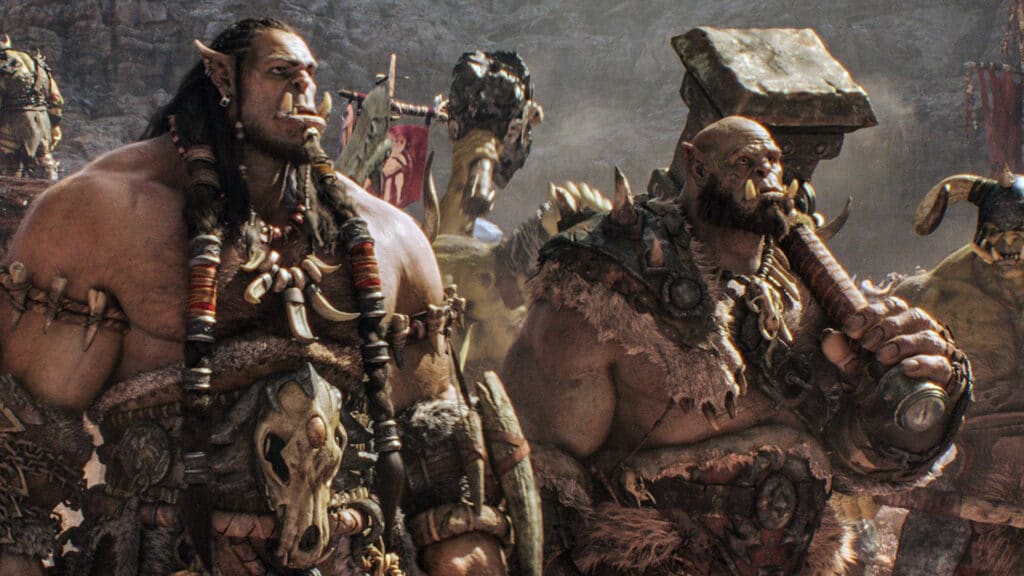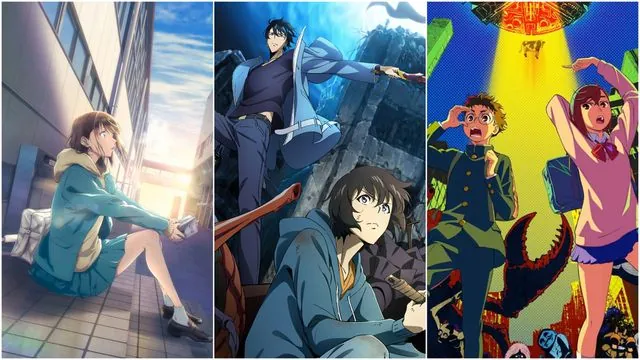Adverts
Game adaptations into films have been gaining more and more space on the big screen and in the hearts of fans.
This combination of gaming and film not only revives iconic stories, but also transforms them into even more exciting experiences.
Adverts
After all, who hasn't wanted to see their favorite characters come to life with stunning visual effects and epic narratives? 🎮🎥
Over the past few years, these productions have proven to be much more than simple tributes. They explore the essence of the games, bringing additional layers of emotion and depth.
Adverts
In this content, we'll dive into what makes these adaptations so special, the challenges they face, and, of course, the successes that have already won over millions of fans around the world.
Get ready to understand why these films are not just a passing trend, but a true cultural phenomenon.
From its box office impact to its relationship with gamers, let's explore the secrets behind this successful formula. ✨

The Fascination of Game-to-Film Adaptations 🎮🎥
Game adaptations for film have a unique charm that captivates audiences. They're not just a form of entertainment, but a true invitation to explore fantastical universes previously confined to video game screens. These films have the power to bring a completely new dimension to stories we already know and love. But what makes these productions so engaging? The answer lies in the combination of nostalgia, fidelity to the original games, and the innovation that only cinema can provide.
Nostalgia and Emotional Connection
For many, games represent much more than just entertainment. They are an essential part of childhood or important moments in life. When a beloved game comes to life on the big screen, it evokes a deep emotional connection. The viewer isn't just watching a film, but reliving memories and experiences that have shaped their life.
For example, franchises like Pokémon or Sonic the Hedgehog have managed to connect directly with fans across generations. These adaptations transport audiences to a state of euphoria and emotion, resurrecting feelings that had been dormant. It's like revisiting an old friend, but from a new perspective.
Furthermore, nostalgia is a powerful marketing tool. It attracts not only longtime fans but also new audiences curious to discover what makes these stories so iconic.
Innovation and Expansion of Universes
Another reason for the success of game adaptations for film is the ability to expand narrative universes. Films have the freedom to explore secondary stories, deepen characters, and even create new plots, something that isn't always possible in games.
For example, the movie Warcraft not only brought the epic conflict between humans and orcs to the screen, but also expanded the mythology of the Azeroth universe. Productions such as Detective Pikachu took the Pokémon franchise in a groundbreaking direction, introducing an investigative narrative into a hyper-realistic universe.
- Movies can cover aspects of the story that are not explored in the games.
- They allow supporting characters to have more screen time.
- The cinematic format allows for the creation of spectacular visuals that enhance the impact of the narrative.
These adaptations not only recreate the game, but also add layers of depth that captivate both longtime fans and new viewers.

The Challenges of Bringing Games to Cinema
Despite its potential, transforming a game into a film is no easy task. Many challenges must be overcome for the adaptation to be successful, and this isn't always the case. After all, the transition from an interactive format to a linear narrative requires care and sensitivity.
Fidelity to the Original Material
One of the biggest challenges directors and screenwriters face is maintaining fidelity to the original game. Fans are extremely attentive to detail, and any drastic changes can lead to dissatisfaction. They expect films to respect the essence of the games, from the character designs to the main plot.
On the other hand, cinema demands adaptations that work within its own narrative limitations. The balance between maintaining fidelity and adapting elements for a general audience is a fine line. Films like tomb Raider and Resident Evil are examples of productions that tried to balance these demands, sometimes successfully and sometimes not so much.
Reception from Fans and Critics
Another significant challenge is meeting the expectations of not only fans but also critics. While fans evaluate the film based on its connection to the game, critics analyze aspects such as script, acting, and cinematography.
Unfortunately, the history of cinema is replete with examples of adaptations that failed to win over both audiences. Films like Super Mario Bros. (1993) and Street Fighter (1994) are often remembered as failures, precisely because they failed to capture the essence of the original games and because they presented confusing narratives.
However, in recent years, the tide has turned, with more elaborate productions, such as Sonic the Hedgehog Movie and Uncharted, showing that it is possible to please both fans and critics.
The Role of Technology in Film Adaptations
Technology plays a crucial role in the success of game adaptations for film. Thanks to technological advances, films can bring to the screen vast worlds and characters that previously existed only in players' imaginations.
Stunning Visual Effects
Visual effects are undoubtedly one of the greatest technological contributions to these adaptations. They allow for the recreation of environments and creatures with an impressive level of realism. From the futuristic settings of Assassin's Creed to Sonic's detailed expressions, technology brings stories to life in ways previously unimaginable.
Another notable example is the film Final Fantasy: The Spirits Within, which, despite receiving mixed reviews, was a technological milestone in terms of animation and motion capture. These advancements not only improve visual quality but also increase audience immersion.
Virtual Reality and Interactivity in the Future
With the advancement of virtual and augmented reality, we may see new ways of adapting games for film. Imagine watching a movie... The Legend of Zelda where you can interact with the environments or explore Hyrule immersively. While we're still in the early stages of this technology, the future promises innovations that could redefine what we mean by "adaptation."
- Improved motion capture for more realistic characters.
- Integration of immersive technologies such as virtual reality.
- Hybrid productions that combine cinema and interactivity.
Why Do These Adaptations Continue to Captivate Audiences?
Ultimately, the success of game adaptations for film comes down to their ability to tell compelling stories, expand upon familiar universes, and create unforgettable experiences. For audiences, these productions are a chance to experience an adventure beyond the confines of consoles. For studios, they represent an opportunity to explore established franchises and attract new audiences.
With more quality productions being released and technological advances transforming cinema, it's safe to say that the future of game adaptations for the big screen is bright. After all, who doesn't love seeing their favorite heroes come to life in a cinematic epic? 🎬

Conclusion
Game-to-film adaptations have been steadily gaining ground in the hearts of fans and the entertainment world. 🎮🎥 This is no coincidence! These productions manage to combine the best of both worlds: the immersive narrative of video games and the visual and emotional impact of cinema. By immersing ourselves in these stories on the big screen, we are transported to incredible universes, filled with action, adventure, and emotion. 🌟
Furthermore, the magic of these adaptations lies in the balance between fidelity to the source material and the ability to surprise even the most demanding fans. The plots are reimagined for a wider audience, offering something new to both gamers and viewers who have not yet played the games. As a result, these productions not only strengthen the emotional connection with fans but also expand the reach of the original franchises. This is entertainment at its most immersive! 💥
In short, the success of game-based films reflects the creators' passion for capturing the essence of these iconic stories. With constant innovation and a quest for authenticity, this genre promises to continue to enchant generations for a long time to come. Bring on new adventures! 🚀




